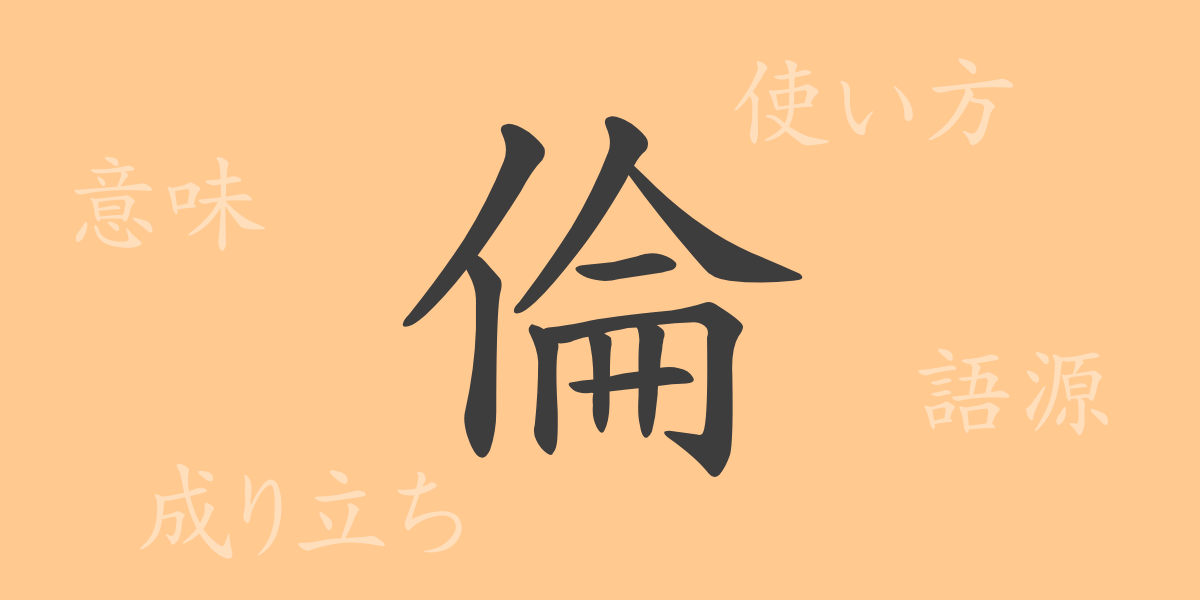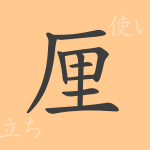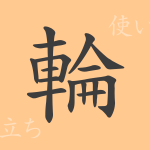Language is like a mirror that reflects the deep layers of culture and history. One of the 常用漢字 (jōyō kanji) in Japan is the character “倫” (rin). This kanji symbolizes the fundamental morals and ethics of society, forming the foundation of education and human relationships in Japan. In this article, we delve into the origins, meanings, usages, and related idioms and expressions of the character “倫” (rin), exploring its full scope.
Origins of 倫 (rin)
The kanji “倫” (rin) has been used in ancient China to signify relationships and order among people. This character is composed of “亻” (ninben), which refers to a person, and “侖” (rin), which means order or norms. Therefore, “倫” (rin) is understood as a kanji representing order and norms in human relationships.
Meaning and Usage of 倫 (rin)
The kanji “倫” (rin) is used to indicate correct morals, ethics, and the proper way of human relationships. It is often used to refer to the moral standards required between people and the principles that maintain social order. Even in modern Japan, it is an important concept in discussions of ethics and social norms.
Reading, Stroke Count, and Radical of 倫 (rin)
In Japanese, the character “倫” (rin) is primarily read with its on’yomi (音読み) as “リン” (rin). There is no specific kun’yomi (訓読み).
- Reading: On’yomi “リン” (rin)
- Stroke Count: 10 strokes
- Radical: 亻 (ninben)
Idioms, Expressions, and Proverbs Using 倫 (rin) and Their Meanings
The kanji “倫” (rin) is used in many idioms and expressions. For example, “人倫” (jinrin) means human relationships’ morals, “倫理” (rinri) means moral norms and principles, and “道徳倫理” (dōtoku rinri) indicates the standards for judging the goodness or badness of actions. “倫理観” (rinrikan) refers to an individual’s moral values, and “法と倫理” (hō to rinri) describes the relationship between law and moral norms. These idioms form important concepts frequently used in daily life, business, and legal fields.
Summary of 倫 (rin)
The kanji “倫” (rin) is an important character symbolizing the morals and ethics fundamental to human relationships. From its origins, meanings, and usages to related idioms, it is deeply rooted in Japanese society and culture. Considering things from an ethical perspective is crucial not only for individual behavior but also for maintaining social order as a whole. Thus, “倫” (rin) holds value beyond a mere character, providing a guiding concept in our lives.

























